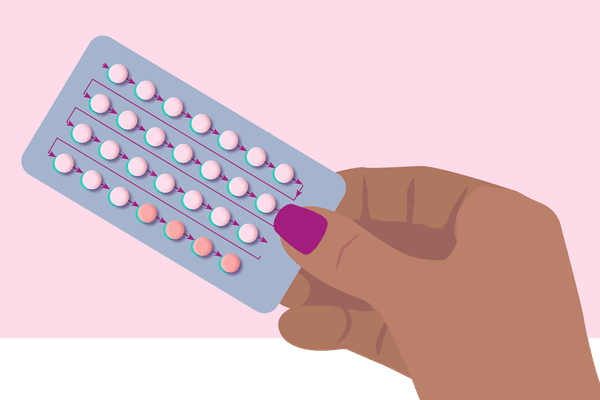Before the first oral contraceptive was approved by the US Food and Drug Administration (FDA) in 1960, women had limited birth control methods to prevent unwanted pregnancies. And it actually wasn't until 1968 that the Supreme Court (in Griswold v. Connecticut) gave married couples the right to use birth control, ruling that it was protected in the Constitution as a right to privacy.1
Today, birth control pills are one of the most common methods of birth control in the United States.2 Yet, despite the Pill's popularity, many women still wonder: Which birth control pill may be right for me? How effective is it? Read on for answers to your most pressing questions.
1. What are oral contraceptives?
Birth control pills are available by prescription and intended for pregnancy prevention. They are taken orally at the same time every day to help prevent pregnancy. There are 2 main types of pills: combination pills (COCs), which contain both estrogen and progestin, and mini pills, which contain progestin only.3
2. How does the Pill work?
Birth control pills contain hormones that stop the ovaries from releasing eggs and thicken the cervical mucus, which keeps the sperm from getting to the egg.4
3. Does the Pill start working right away?
While it depends on the type of pill you're taking and when you start taking it, you may need to use a backup method (such as a condom and spermicide) for the first 7 days.5 Talk to your healthcare provider if you have any questions.
4. What if I miss my scheduled period when taking the Pill?
It is not uncommon to miss your period. However, if you go 2 or more months in a row without a period, or you miss your period after a month where you did not take all your pills correctly, call your healthcare provider because you may be pregnant. Also notify your healthcare provider if you have symptoms of pregnancy such as morning sickness or unusual breast tenderness.6
5. What will my periods be like?
It all depends on the type of pill and regimen you're taking. Some women might experience “breakthrough bleeding" while on the Pill, which may persist for a few months while their body is adjusting. It's important to talk to your healthcare provider if the "breakthrough bleeding" or spotting is heavy or lasts for more than a few days, or if you have any questions about your menstrual period.7
6. How soon after stopping the Pill can I get pregnant?
You can get pregnant as soon as you ovulate after stopping the Pill. It may take 2 weeks or longer for ovulation to occur after stopping the Pill. Although it may take a few months for your cycle to become regular again (they may be irregular or not appear at all), it's still possible to become pregnant during that time.8 Before you decide to become pregnant, consider a pre-pregnancy checkup with your healthcare provider to gauge your overall health and confirm that your body is ready for pregnancy.9
This resource was created with support from Allergan.
Sources:
- https://www.ourbodiesourselves.org/book-excerpts/health-article/a-brief-history-of-birth-control/.
- https://www.cdc.gov/nchs/data/nhsr/nhsr060.pdf.
- https://www.hhs.gov/opa/pregnancy-prevention/birth-control-methods/birth-control-pills/index.html.
- https://www.fda.gov/consumers/free-publications-women/birth-control.
- https://my.clevelandclinic.org/health/drugs/3977-birth-control-the-pill.
- https://www.healthline.com/health/missed-period-on-birth-control#takeaway.
- https://www.mayoclinic.org/healthy-lifestyle/birth-control/in-depth/best-birth-control-pill/art-20044807.
- https://www.webmd.com/baby/get-pregnant-after-birth-control#2.
- https://www.marchofdimes.org/pregnancy/your-checkup-before-pregnancy.aspx.
© 2019 Allergan. All rights reserved.
Allergan® is a trademark of Allergan, Inc.
UNB129154 10/19
- Clinically Speaking: Questions to Ask Your HCP About Birth Control Methods - HealthyWomen ›
- Fast Facts: What You Need to Know About Birth Control - HealthyWomen ›
- Fast Facts: What You Need to Know About Birth Control - HealthyWomen ›
- Hormonal vs. Non-Hormonal Contraception: What’s the Difference? - HealthyWomen ›
- The Mini Pill for Birth Control: What You Need to Know - HealthyWomen ›
- Questions to Ask a If You Want to Start Oral Contraception - HealthyWomen ›
- De-Bunking Myths About Birth Control - HealthyWomen ›





